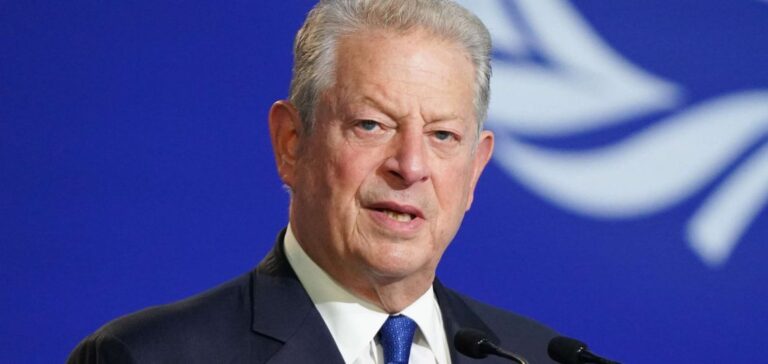Former United States Vice President Al Gore stated that anti-environmental measures taken by the Trump administration are unlikely to significantly slow the global energy transition. Speaking to the press in Paris, he argued that despite hostility toward scientific research and academic freedoms, the industrial and financial momentum surrounding renewable energies would render any attempts at obstruction largely ineffective over time.
Highlighting the economic power of the fossil fuel sector—described as “the richest and most influential in history”—Gore nonetheless emphasised the market’s shift toward more profitable energy solutions. He cited data from the International Energy Agency (IEA), indicating that solar electricity is now the cheapest in the world. According to him, this creates an economic rationale in favour of renewables, regardless of political agendas.
Court rulings as a counterweight to federal policies
Gore also pointed out that several executive orders issued by Donald Trump on environmental matters have been overturned by US courts. He expressed confidence in the resilience of legal institutions against attempts by the executive branch to bypass regulations, underlining the American public’s strong commitment to the rule of law. These elements, he stated, limit the federal government’s ability to impede ongoing changes in the energy sector.
A trend supported by market data
The Nobel Peace Prize laureate highlighted that 93% of new global energy production in 2024 came from renewable sources. This, in his view, reflects a structural rather than a temporary shift, driven by the growing competitiveness of solar and wind technologies. He indicated that companies faced with investment decisions are increasingly opting for less expensive electricity sources, irrespective of political signals.
Al Gore spoke during a conference in Paris attended by 800 people, organised by his non-governmental organisation The Climate Reality Project. He is also participating in the “SOS Ocean” summit, a preparatory stage ahead of the third United Nations Ocean Conference scheduled for June in Nice. According to him, grassroots mobilisations such as the We’re Still In movement reflect a continuity of action even during times of political instability.






















